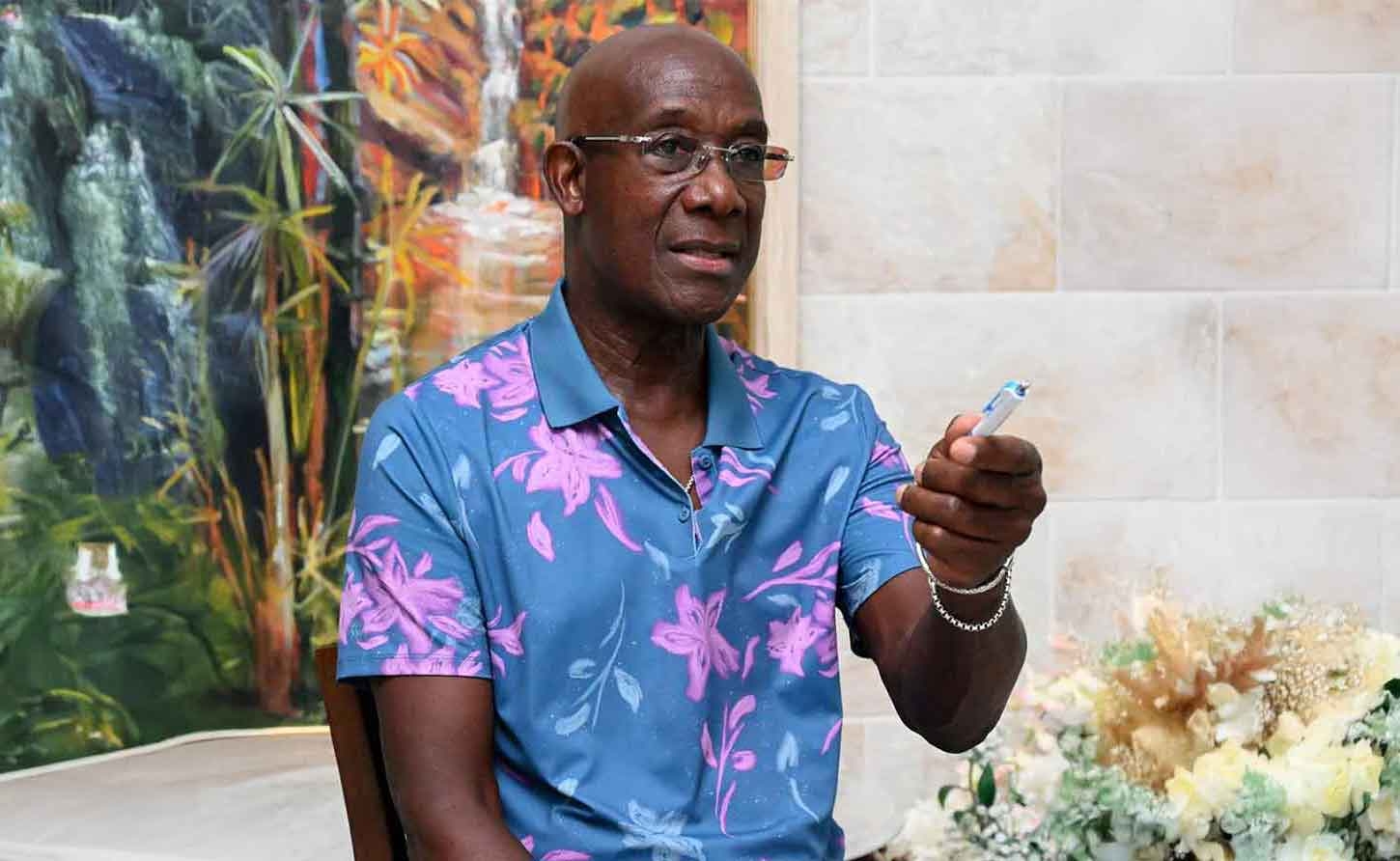CARIBBEAN | T&T's Keith Rowley Signs Historic Caribbean Peace Statement as US Announces 10th Deadly Strike

Former Trinidad PM joins regional leaders' warning on his 76th birthday—the same day six more die in controversial maritime bombing campaign
PORT OF SPAIN, TRINIDAD – OCTOBER 24, 2025 – On what should have been a day of personal celebration, former Trinidad and Tobago Prime Minister Dr. Keith Rowley instead marked his 76th birthday by adding his signature to what may become one of the most significant statements in Caribbean diplomatic history—and he did so on the very day the United States announced its tenth missile strike on a vessel in Caribbean waters, killing all six people aboard.
The timing was not coincidental. It was damning.
"Today, on my 76th birthday, I find it necessary and dutiful to sign on to this historic statement of Former Heads of Caricom," Dr. Rowley declared, joining ten other former Caribbean prime ministers in expressing grave concern over "increased military security buildup and the presence of nuclear vessels and aircraft within the Caribbean archipelago."
But Rowley's statement carried additional weight—and unusual bite. In language rarely deployed by Caribbean elder statesmen, he directly criticized his own country's current government for abandoning the very principles Trinidad and Tobago once championed across the region.
"It is with a deep sense of loss and sadness that I reflect on the leadership provided by Trinidad and Tobago, at an earlier time," Rowley said, recalling when his nation's voice "supported by all my colleagues" affirmed that "together we are stronger" and that Caribbean nations, though small, were "not insignificant."
His rebuke grew sharper: "I am today embarrassed to accept that with our proud record of leadership and accomplishments, that today, it is Trinidad and Tobago that recklessly subscribes to the dispensing with these principles in the expectation of plenty."
Most strikingly, Rowley condemned what he called "a dangerous dereliction of duty, under any circumstances, to embrace the discarded colonial mantra that might is right and that the rule of law, local or international is an inconvenience and a humbug."
The backdrop to this extraordinary statement gives his words particular resonance. Hours after Rowley signed the declaration, US Defense Secretary Pete Hegseth announced on social media that American forces had conducted their tenth missile strike on a maritime vessel, this time at night, killing six people identified as members of Venezuela's Tren de Aragua gang.
The strike brings the known death toll from this bombing campaign to 43 people—all killed without arrest, trial, or due process. Hegseth's social media post claimed the vessel was "known by our intelligence to be involved in illicit narcotics smuggling" but provided no evidence. He added ominously: "If you are a narco-terrorist smuggling drugs in our hemisphere, we will treat you like we treat al-Qaeda. Day or NIGHT, we will map your networks, track your people, hunt you down, and kill you."
This is precisely the scenario the eleven former Caribbean leaders warned against in their joint statement, which explicitly references the Shiprider Agreement with the United States—a pact carefully negotiated to allow drug interdiction "without extrajudicial killing and the destruction of that which could provide conclusive evidence of criminal operation."
The statement's language about resisting "external intervention" and insisting that "military action in our maritime waters should be governed by international law and not effectively deny due process" reads less like diplomatic boilerplate and more like prophetic warning in light of Friday's strike—the third in as many days.
Rowley, who served as Prime Minister from 2015 to 2025, joins Baldwin Spencer, P.J. Patterson, Said Musa, Dean Barrow, Freundel Stuart, Edison James, Tillson Thomas, Donald Ramotar, Bruce Golding, and Kenny Anthony in warning that the Caribbean risks being "pulled into conflicts which are not of our making."
On his 76th birthday, surrounded by news of six more deaths in Caribbean waters, Rowley's signature carried the weight of both celebration and mourning—for what the region once stood for, and what it now risks becoming.
-30-
